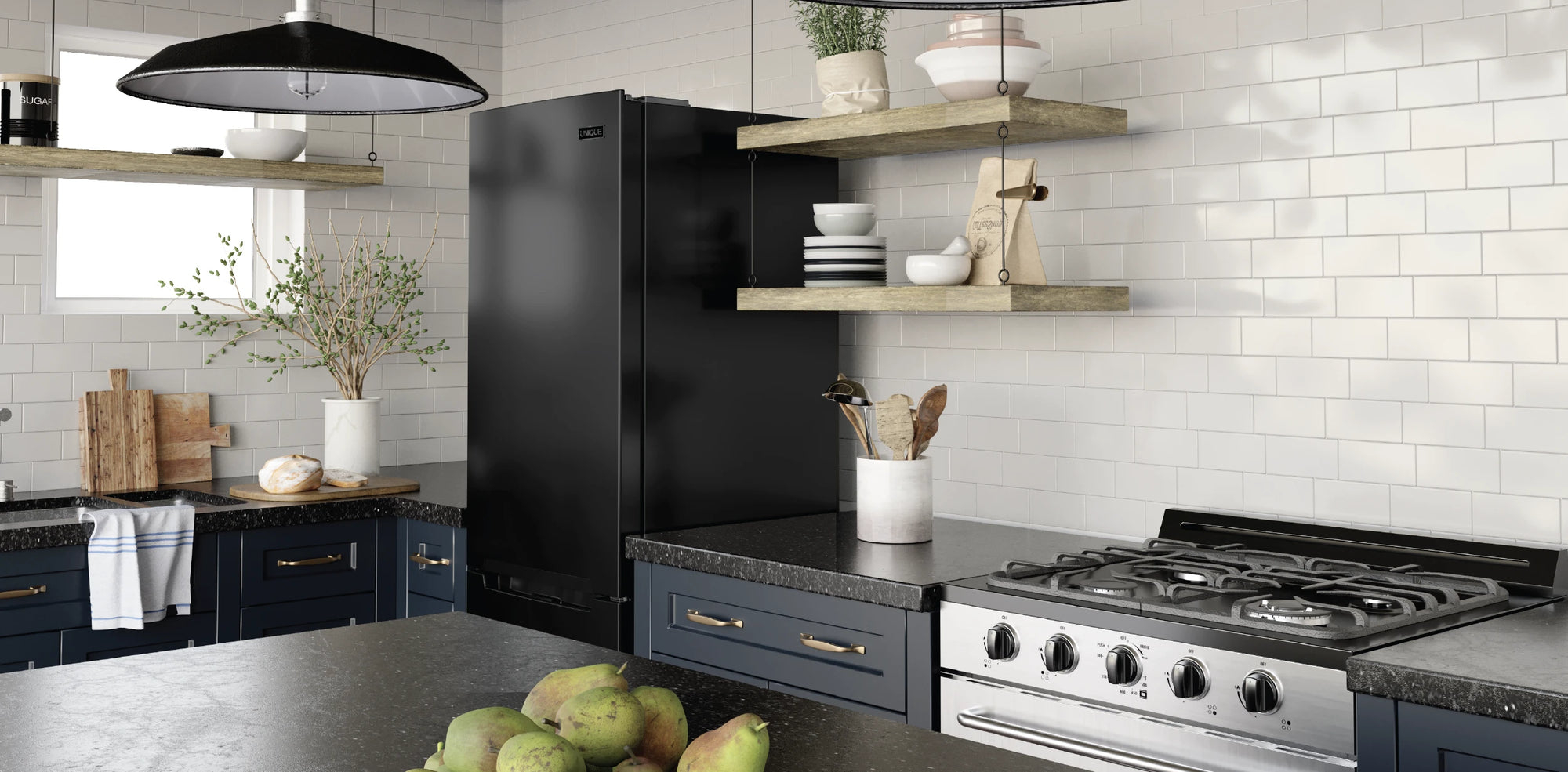Zwy
Solar Wizard
I'm about to replace my propane fridge with a "solar" fridge from Unique... they have quite a few options these days:

Solar DC Refrigerators & Freezers
Complete the look of your kitchen with a matching fridge/freezer and rangehood!uniqueappliances.com
They run off DC power (you can buy an AC adapter if you want though) and are very efficient. The 14 cubic foot model I'm considering reports:
Operation:DC Power, 12V / 24V
Total Watt. hr. draw (24V DC):611 Wh/ 24 hrs (set to -14˚C / 6.8ºF freezer/+4˚C / 39.2ºF refrigerator performance in a +25˚C / 77ºF ambient)
Total Watt. hr. stable (24V DC):535 Wh/ 24 hrs (set to -14˚C / 6.8ºF freezer/+4˚C / 39.2ºF refrigerator performance in a +25˚C / 77ºF ambient)
Power consumption:75 W on 12V/24V
Average run current:3.2A on 24V
Fridge temp. range:-3°C to +10°C / 26.6ºF to 50ºF
Freezer temp. range:-15°C to +6° / 5ºF to 42.8ºF
76W x 12 hours (runs 50% of the time) = 912W
About 1 Kwh over a 24 hour period. I'm not quite sure where they came up with 611Wh........
From everything I've seen, a refrigerator runs 30 min cycle off/on.


